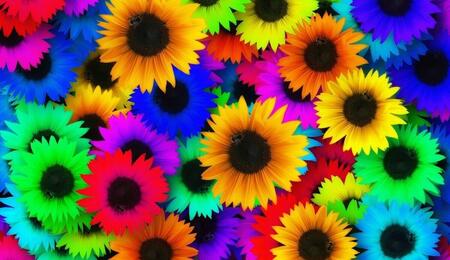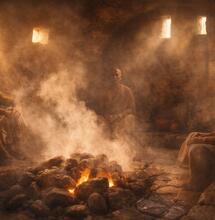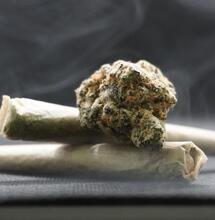Cannabis Greatest Moments in Popular Culture

From seeing Rihanna rolling a joint at Coachella to Snoop Dogg and Martha Stewart hosting a cooking show together, cannabis has become an inerasable part of contemporary pop culture. To the point, it’s not even news anymore. But it wasn’t always like that. Let’s have a look at how cannabis influenced pop culture over the decades and what were some of the most iconic moments along the way.
Cannabis has had its highs and lows in the history of popular culture. Whether it was the Beatniks, the Counterculture movement, or the 90s hip hop kids, each generation has made its influence in normalizing and accepting cannabis into society.
Bob Dylan, Black Sabbath and The Beatles were some of the first big names who started to reference cannabis more explicitly in their songs, creating popular marijuana-centric lyrics during the 1960s and 1970s. The first stoner movies also appeared in the same period. As did began the War on Drugs, which ushered the era of prohibition and harsh repression on cannabis.
The road was long to normalize the simple act of smoking a joint. Here’s a rundown of the golden moments of cannabis and how the magic herb influenced pop culture over the years, and how it changed history.
1928: Louis Armstrong Releases ‘Muggles’
Long before the word ‘muggles’ was used to single out people who did not have any magical powers in the Harry Potter series, the jazz musicians of the Roaring Twenties used it as a slang term for marijuana. Louis Armstrong and His Orchestra even recorded a tune called “Muggles” in 1928, in a clear reference to the cannabis plant, making an early impression in pop culture.
1936: ‘Reefer Madness’ Debuts on the Big Screen
“These high school boys and girls are having a hop at the local soda fountain,” starts the original trailer for Louis Gasnier's film Reefer Madness. “Innocently they dance,” it continues. “Innocent of a new and deadly menace lurking behind closed doors: marijuana! The burning weed with its roots in hell!”
Originally titled Tell Your Children, the low-budget exploitation film was the first in a series of anti-marijuana propaganda movies to be produced in the U.S., as marijuana prohibition began taking a hold in the 1930s. The film sparked mass hysteria among parents who sometimes even broke up relationships with their children because of pot. Reefer Madness was rediscovered by the Hippies in the 1960s, who began screening the movie in an act of mockery.

1943: ‘Hemp for Victory’ Premiers During the War
Not all propaganda material was to demonize cannabis back in the day. Hemp for Victory is one such example. This was an informational film released at the height of World War Two, encouraging farmers to cultivate hemp and help the war effort. The film said that hemp can be used for clothes and ropes production. But that was a brief moment of hemp positivity. When the war was over, hemp was added back on the list of prohibited crops.
1948: The First Celebrity Is Busted for Weed
In the old days, even Hollywood disapproved of smoking marijuana. Not even the big-screen names were safe. When film noir star Robert Mitchum was caught smoking weed at a small party in Los Angeles in 1948, it earned him 60 days in jail.
Mitchum, who was nominated for an Academy Award three years earlier for his appearance in The Story of G.I. Joe, was devastated by the scandal. He reportedly said at the time: “Well, this is the bitter end of everything—my career, my marriage, everything.” After serving his sentence, the actor returned to cinemas around the country with the picture Rachel and the Stranger, which instantaneously became a box-office hit.
1954: Aldous Huxley Publishes ‘The Doors of Perception’
In one of his most significant works of literature, author Aldous Huxley elaborates on his mescaline-induced psychedelic experiences. The Doors of Perception largely influenced how drugs, including cannabis, are perceived in arts, society and popular culture. The book dynamized the Hippie movement of the next decade. It even inspired Jim Morrison to name his band The Doors after Aldous Huxley’s title.
1969: ‘Easy Rider’ Premiers
Wyatt and Billy, played by Peter Fonda and Dennis Hopper respectively, are two Harley-riding hippies who head to New Orleans to wind up a drug deal in the famed title Easy Rider from 1969. The movie brings on the spirit of the decade’s counterculture movement. An immediate success, it sparked a new era in American cinematography. Easy Rider is ranked second on this ultimate stoner movies list from Rotten Tomatoes.

1969: Woodstock Festival Takes Place
Woodstock is pretty much synonymous with the “golden days” of cannabis culture. It was the event of the decade, if not the entire 20th-century. And for all the dope reasons it’s now in the history books. Almost half a million people showed up at the Bethel dairy farm in New York, where outstanding artists such as Janis Joplin, Jimi Hendrix, The Grateful Dead, and Joan Baez were scheduled for a gig.
For young people, Woodstock represented an escapade of the harsh American reality. The Vietnam War was in full swing on the other side of the world. Then the longest war in American history, the average age of combat soldiers in Vietnam, who typically served a 12-month duty, was 19. During World War Two, the average age was 26. Paul Hardcastle later encapsulated this grim fact in his synth-pop tune “19.”
Woodstock was a platform to send a message for unity and peace. The event became legendary in the decades since its happening. Smoking a lot of weed is just one bit of the great and hazy Woodstock story.
1972: The First Michigan Hash Bash
Under the Nixon administration in the 1970s, drug laws became much more rigid and restrictive than ever. When Michigan-born author and political activist John Sinclair was put behind bars for carrying two joints on his person, people went out on the streets and protested the court decision. It was April 1972, and the gathering took place in Ann Arbor.
This mass gathering eventually evolved into an annual event, and became known as the Ann Arbor Hash Bash, the first cannabis-centered event in the nation, which also inspired more such gatherings in other states around the country. John Lennon, Yoko Ono, Stevie Wonder, and Bob Seger are just some of the names that over the years have performed on the annual Hash Bash in support of John Sinclair.
To this day, the first Saturday of every April continues to be reserved for the annual Ann Arbor Hash Bash. By tradition, the event starts at noon at the University of Michigan. Cannabis legend John Sinclair sadly died on April 2, 2024. He was 82.
1978: ‘Up In smoke’ Premiers
By the late 1970s, cannabis influence in pop culture became all the more obvious. Up In Smoke is a cinematic gem that follows Cheech Marin and Tommy Chong, starring as two young men who meet by chance and share a spliff. The duo eventually forms a band and has a hit called “Earache My Eye.”
The movie is noted for its abundance of “dudes” dialogue, contributing to stoner vocabulary. Cheech and Chong today run their own cannabis brands and they are a true living cannabis legends in popular culture.

1990: The Grateful Dead Help Establish 4/20
There are several stories and myths as to how 4/20 started. But when it comes to who popularized the unofficial marijuana holiday, the credit goes to the American rock band The Grateful Dead. It was 1990 and a handbill circulated a concert crowd as everyone waited for The Grateful Dead to start playing at the Oakland-Alameda County Coliseum. “We are going to meet at 4:20 on 4/20 for 420-ing,” the coded piece of paper read.
“There's something magical about getting ripped at 4:20, when you know your brothers and sisters all over the country and even the planet are lighting up and toking up right along with you,” it went on. “Now we are talking about the day of celebration, the real time to get stoned, the grandmaster of all holidays, 4/20 or April 20. This is when you must get the day off work or school.”
Cannabis magazines eventually picked the story, and the coverage helped Four Twenty become a thing.
1991: The First Hempfest in Seattle Happens
Originally known as the “Washington Hemp Expo,” the first Seattle Hempfest took place in 1991, and was attended by an audience of around 500 people. Way before Coachella, the early Hempfests were known for undisguised pot smoking. As many as 60 people were cited for the illegal use of marijuana at the 1997 edition of the event. Seattle’s Hempfest eventually grew into one of the world’s biggest annual gatherings that advocated the legalization of marijuana.
Famous artists, politicians, and activists regularly headlined the event. Some of the artists who have performed include Fishbone (2002), The Kottonmouth Kings (2004), and Pato Banton (2007). In 2013, when Washington became one of the first states to legalize cannabis, it was Cypress Hill and Everlast who took the stage for a big party and celebration.
The most recent edition of the Seattle Hempfest was in 2020. The pandemic killed many of these iconic cannabis events, which greatly helped destigmatize cannabis and eventually also left their mark on popular culture. Hopefully, the organizers make a come back soon!
1992: Dr. Dre Releases ‘The Chronic’
Dr. Dre’s debut solo album is named after a slang term for high-grade cannabis, and the album’s cover art is an homage to Zig-Zag rolling papers. Looking back, what makes this record even more iconic is that it had a significant guest contribution from a fellow rapper who a year later, in 1993, released his own debut album, called Doggystyle. Dr. Dre is a legend. And Snoop Dogg today is probably the most famous person on the planet who has crafted his own image around big fat king-size rolls.

1993: Alright, Alright, Alright, ‘Dazed and Confused’ Is Out
While Snoop Dogg released Doggystyle in 1993, Matthew McConaughey debuted as stoner David Wooder in Dazed and Confused. The movie follows a high school story set in 1976, and in one of its most famous scenes, the teenage characters have a revelation about George Washington, that the first U.S. president and one of the Founding Fathers also smoked weed and cultivated plants at his home mansion. Ranking #1 at Rotten Tomatoes, Dazed and Confused is a quintessential stoner flick.
1998: ‘The Big Lebowski’ Shows in Cinema
Jeff Bridges plays Jeffrey “the Dude” Lebowski in the cult crime comedy. The film has even led to the creation of “Dudeism,” a religion devoted to spreading the principles and lifestyle of Big Lebowski. Also called “The Church of the Latter-Day Dude,” Dudeism has reportedly converted over 200,000 “Dudeist Priests” all over the world via an official website designated just for that. Yup, all of this totally sounds like something you come up with only when you’re super stoned. Should we even need to further discuss the influence of cannabis on pop culture? In case you are interested in Dudeism, just take it easy mankind, here's the website. And needless to say, to be ordained as a Dude, you must love bowling and blowing weed.
2000: Afroman Releases ‘Because I Got High’
The turn of the millennia saw Afroman’s ultimate ode to smoking weed conquer global charts. “Because I Got High” stormed at number one in Australia, Austria, Denmark, Norway, Germany, Ireland, New Zealand, and the UK. The music video where Afroman is seen smoking next to Jay and Silent Bob made the song all the more memorable and epochal. This once-in-a-generation dope anthem depicts Afroman’s plan to get his sh*t together in life, but after getting high, all he can do is sing the La da da da la da da la la da da.
2005: ‘Weeds’ Season 1 is Out
The plot of Weeds revolves around a widowed mother of two, played by Mary-Louise Parker, who begins to sell pot so she can pay the bills and take care of her family. This American dark comedy aired between 2005 and 2012. Parker won for Best Performance by a TV Actress in a Musical or Comedy at the Golden Globe Awards in 2006.
The TV show glided America into a new era where cannabis became a welcome household commodity, both for fun and as a medical therapy. Smoking weed scenes in film are pretty common now, and this TV show is another reminder of the great influence that cannabis has had on pop culture over the years.
Also read on Soft Secrets:
- Bob Marley: An Icon of Cannabis Culture






